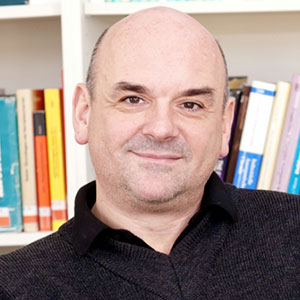

 Prof. Dr. Matthias Driess, CLUSTER OF EXCELLENCE UNICAT
Prof. Dr. Matthias Driess, CLUSTER OF EXCELLENCE UNICAT Chair
Matthias Driess recieved his PhD 1988 at the Ruprecht-Karls University of Heidelberg. In addition he studied philosophy in Heidelberg. He worked as a postdoctoral fellow with Professor Robert West in Madison, U.S.A., before finishing his habilitation at the University of Heidelberg in 1993. From 1996-2004 he was appointed as full-professor for Inorganic Chemistry at the Ruhr University Bochum. Since 2004 he holds a chair for organometallic chemistry and inorganic material synthesis at the Department of Chemistry at the Technical University Berlin. In 2007 he became spokesperson of the Cluster of Excellence UniCat (www.unicat.tu-berlin.de), and most recently co-director of the UniCat-BASF joint lab BasCat at the campus of the TU Berlin and vice-chair of the Einstein Centre of Catalysis. He is a member of the German National Academy of Sciences Leopoldina, the Berlin-Brandenburg Academy of Sciences and Humanities and has published more than 340 scientific papers in peer-reviewed journals.
His research foci are (http://www.driess.tu-berlin.de/)
• New functional groups in main-group chemistry, activation of unreactive bonds in small molecules with them, in particular based on silicon compounds (divalent species, stable silanones, silicon(0) complexes)
• Electron-rich silicon-based steering ligands for transition-metal mediated homogeneous catalysis
• Activation of small molecules (e.g., dihydrogen, dioxygen, ammonia and alkanes) through bioinspired transition-metal complexes, including model complexes of copper-, nickel- and iron-based oxygenases.
• Metalorganic single-source precursors for the low-temperature synthesis of nanoscaled functional materials for energy-saving key technologies like catalysis (materials for solar and electrocatalytic water splitting) an for optoelectronics, including präorganized synthesis of multinary basis materials Basismaterialien for energy-saving thin-film field effect transistors
• Molecular models for heterogeneous catalysts (e.g., metal oxide-based selective oxygenation of hydrocarbons)